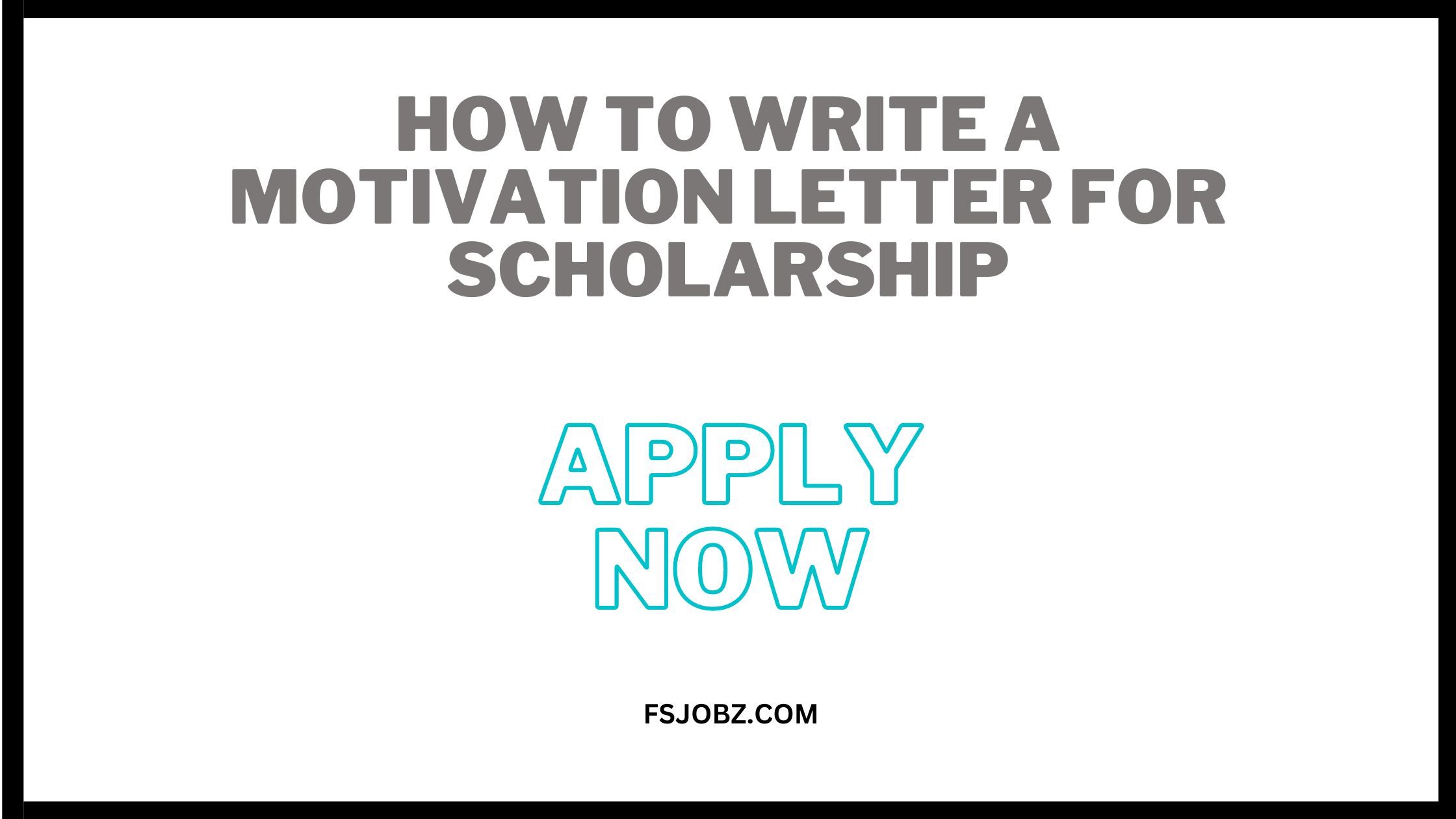How to Write a Motivation Letter for a Scholarship Request is a comprehensive class. I’m going to inform you that creating an effective motivation letter is not a discipline. To initiate, you must first understand what a Motivation Letter is. A scholarship motivation letter is a theoretical certificate that expresses a candidate’s interest in a course, degree program, university, or scholarship, as well as how it will advantage them. Your scholarship application is escorted by an incentive letter.
It is a shortened form of your application, and the committee judges if the candidate deserves it or not based on this letter. Thousands of students apply for a single scholarship, yet only a small percentage of them get accepted. Documents, motivation letters, and cover letters will be used to make your decision.
I’ve begun putting up miniature guides on those crucial issues. Where the majority of bachelor’s and master’s students lack confidence in themselves. Before getting started, I attempted to conduct some study on constituting such letters. You will discover some important things to remember when writing. If somebody follows this pattern, I am self-assured that they will comprehend and learn that generating a complete motivation letter is not easy.
Also, look at this scholarship: Tokyo University scholarships without IELTS
Tips for Motivation Letter for Scholarship Application
My first and most critical piece of advice is to give you plenty of time to write the letter. You’re probably wondering how this will help your motivation letter. It truly works rather nicely, believe me.
To whom and by whom should a Motivation Letter be written?
In most cases, you will write an enthusiastic letter to the scholarship team or those who will be revising your scholarship application. The applicant must write a motivation letter in which he or she expresses their interest in a course, degree program, university, or scholarship and how it will benefit them.
Because competition is so fierce these days, a motivation letter has become a requirement. If you’re submitting an application.
Also, look at this scholarship: Tokyo University scholarships without IELTS
Eye-Catching Motivation Letter
A good motivation letter is one that is both eye-catching and real. The second most noteworthy aspect of your application is this letter. You must put forth a lot of effort. Make a huge note on a piece of daily and jot down these questions;
| 1. Have you checked out the professor’s research interests? |
| 2. Have you tried adding your CV to your LinkedIn profile? |
| 3. Why did you pick that particular nation, university, or division? |
| 4. Why should he pick you out of thousands of applicants for this program? |
| 5. Are you willing to give up your comfort zone in order to fulfill the specified role? |
| 6. If so, how should you proceed? |
| 7. What advantage would the person receive as a result of your decision? |
| 8. What will you do once you’ve made your decision? |
Context of a Motivation Letter
| 1. Introduction to the Motivation Letter should not be more than 3 lines. |
| 2. The backstory to your accomplishments. |
| 3. A summary of your interests and motivation. |
| 4. Why are you a possible candidate? |
How Many Words for a Motivation Letter?
An incentive letter should be between 500 and 700 words long. Make it as short as possible and unnecessary. Write it in a clear and intelligible manner for the Scholarship committee. The essential goal is for them to grip what you’re trying to tell them.
Also, look at this scholarship: Tokyo University scholarships without IELTS
Dedication to Your Fields
Give them the idea that you are fervent about your area and that this scholarship will assist you in achieving your long-term objectives.
First Paragraph of Your Motivation Letter
It will begin with a brief outline that tells them just what they need to know right now. It’s a good idea to say briefly what program and why you wish to apply. The rest of the letter strength be used to expand on the “why.”
Middle Paragraphs
This will be the lengthiest and most important paragraphs. Make clear links between your experiences and the scholarship you’re asking for. Mention how your talents, knowledge, and education are a good fit for the university and course you’re smearing for. Make the finest first impression possible.
Conclusion and Closing Paragraph
Show your appreciation. It takes time to properly study a cover letter and CV, so express your gratitude.
The instant of the preceding sections will be included in the conclusion subsection. Make use of a professional signature. Finish with a professional salutation like “Sincerely,” “Thank you “or” Best wishes.” There are several Best Motivation Letter Samples available. Look it up. Please share our article.
Also, look at this scholarship: Tokyo University scholarships without IELTS
Official Apply link Click here For more information about scholarships visit our site: Click here Follow from: Facebook Instagram Group
Share this content:
